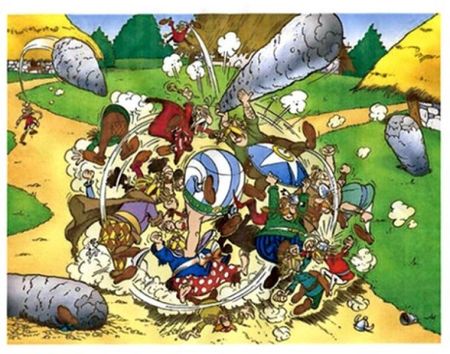Program of the VB-NonorCI workshop
A previous discussion meeting a long time ago.
Format (PLEASE READ CAREFULLY!)
We would like this event to be a workshop in the original meaning of the word, or rather a "discussion meeting", with the main goal of having as much exchange as possible and trying to set and to address some challenges together.
This is why we are proposing, along with a closed list of participants, an original format including the following 5 (unusual) ingredients:
- One introductory lecture on modern Valence Bond theory, and current mathematical and algorithmic techniques in use.
- A few « perspective talks », where a (or several) participant(s) will present the state-of-the-art of a specific approach, including open questions and current challenges. A time slot of 45 min will be allocated, but material for no more than a ~20-25 min standard talk should be prepared, in order to allow comments, questions and additions from other participants during the course of the presentation.
- A few "short perspectives" where a specific facet or point related to one of the « perspective talks » will be very briefly presented and discussed. A time slot of 20 min will be allocated, but in the same spirit as the "perspective talks" material for no more than a ~8-10 min standard talk should be prepared.
- « Framed discussions »: sessions (of ~1h30 overall duration) dedicated to a precise "challenge" to be addressed. It is intended that 2-3 participants will extremely briefly introduce ONE specific point (ONE precise idea, suggestion or question, related to the "challenge"), in no more than ~3-5 min (=> ~1-2 slides), and open questions for the discussion; to be followed by extensive discussions framed by an animator, in order to address collectively this particular "challenge".
- All the way through the meeting: extended coffee breaks and lunch times, in order to facilitate the continuation of lively discussions in small groups in a more informal and flexible way
So this event will not feature usual types of scientific presentations, but original and specific forms of contributions with the intention of stimulating discussions, exchanges, collective work, with a format intended to favour this.
Challenges
List of possible challenges that could be collectively addressed during the "framed discussions".
The final selection of (~3-4) topics that will be treated during the meeting will be decided after interactions among the participants.
Current list:
- New algorithms for VB wave functions (matrix elements evaluation, orbital optimization).
- New classes of VB methods (beyond HLSP VB wave-functions)
- New wave function based on nonorthogonal Molecular Orbitals
- Efficient and cheap inclusion of dynamical correlation.
- Strategies for excited states.
- Strategies for complex systems (metals, bio(in)organic systems, extended systems, intermolecular interactions)
=> Please email us to tell us:
- which challenge(s) in the list above you would like to see selected for a "framed discussion" ;
- if you would like a slot (~3-5 min) to introduce a point in one of the challenges above ;
- if you would agree to animate the discussions for one of the specific challenges listed.
Indicate to us also if, in addition, you would like to give a "perspective talk" or a "short perspective talk" (following the format detailed in the previous section). Please specify clearly the topic you would like to cover, including a prospective title. IMPORTANT: Note that we'll try to have at most 50% of the total time of this workshop devoted to the introductory + perspective talks (long+short), and at least 50% devoted to the framed discussions. So there will be few slots for perspectives talks (long+short) allocated, and thus we strongly encourage you to favour active participation in the framed discussions (you can ask for several slots in several of the discussions, as well as to animate a discussion). Besides, considering also the large number of participants for this type of event, unfortunately not every body will be given the opportunity to talk.
Schedule
The final precise schedule will be established after interaction with the participants, see points indicated by a red arrow (" => ") in the section above.
| Participants |
|---|
|
